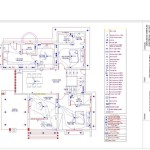Flipping Houses: A Step-by-Step Guide to Crafting a Winning Business Plan
Investing in flipping houses can be a lucrative endeavor, but a well-structured business plan is crucial to success. A solid plan will guide your decisions, mitigate risks, and help you secure funding.
1. Define Your Investment Strategy
Determine your target market, neighborhood, and property type. Define your investment criteria, including the maximum purchase price, desired profit margin, and holding period.
2. Conduct Thorough Market Research
Study market trends, analyze comparable sales, and assess neighborhood demographics. This information will help you determine the potential value of your investment and identify potential challenges.
3. Estimate Acquisition Costs
Account for the purchase price, closing costs, and any necessary repairs or renovations. Include a contingency fund for unexpected expenses.
4. Project Renovation Costs
Estimate the materials, labor, and permits required for your renovations. Get quotes from contractors to ensure accurate budgeting.
5. Set a Sales Price and Timeline
Based on your research and renovation costs, determine a realistic sales price and establish a target timeline for completing the renovations and selling the property.
6. Analyze Potential Risks and Opportunities
Identify potential risks, such as changes in market conditions, unexpected repairs, or delays in construction. Also, consider potential opportunities, such as increasing the property value through additional renovations or upgrades.
7. Secure Funding
Determine the necessary funding source, whether it's personal savings, loans, or private investors. Provide a detailed financial analysis to support your funding request.
8. Develop an Exit Strategy
Plan how you will sell the property once it's renovated. Explore different options such as listing with a real estate agent, holding a open house, or selling directly to a buyer.
9. Legal and Insurance Considerations
Review legal requirements regarding property disclosures, permits, and zoning regulations. Ensure adequate insurance coverage for the property and your business operations.
10. Seek Professional Advice
Consult with an experienced real estate agent, contractor, and financial advisor to gain valuable insights and avoid costly mistakes.
Remember, a business plan is a living document that should be regularly reviewed and adjusted as needed. By following these steps and continuously monitoring your progress, you can increase your chances of success in the competitive house flipping market.

How To Create A Simple House Flipping Business Plan New Silver

House Flipping Business Plan Template Updated 2024

House Flipping Business Plan A4 Word Document Ppt Presentation

How To Create A House Flipping Business Financial Forecast

House Flipping Business Plan A4 Word Document Ppt Presentation

House Flipping Business Plans How To Create One With Examples Reia Of Oakland

Deploying House Flipping Business Plan Marketing And Advertisement Platforms To Find Real Properties Designs
House Flipping Slide Geeks

How To Create A Simple House Flipping Business Plan New Silver

How To Open A Profitable House Flipping Business








